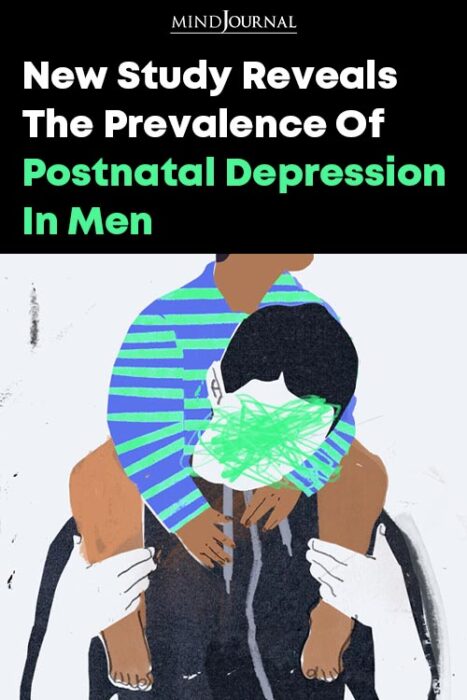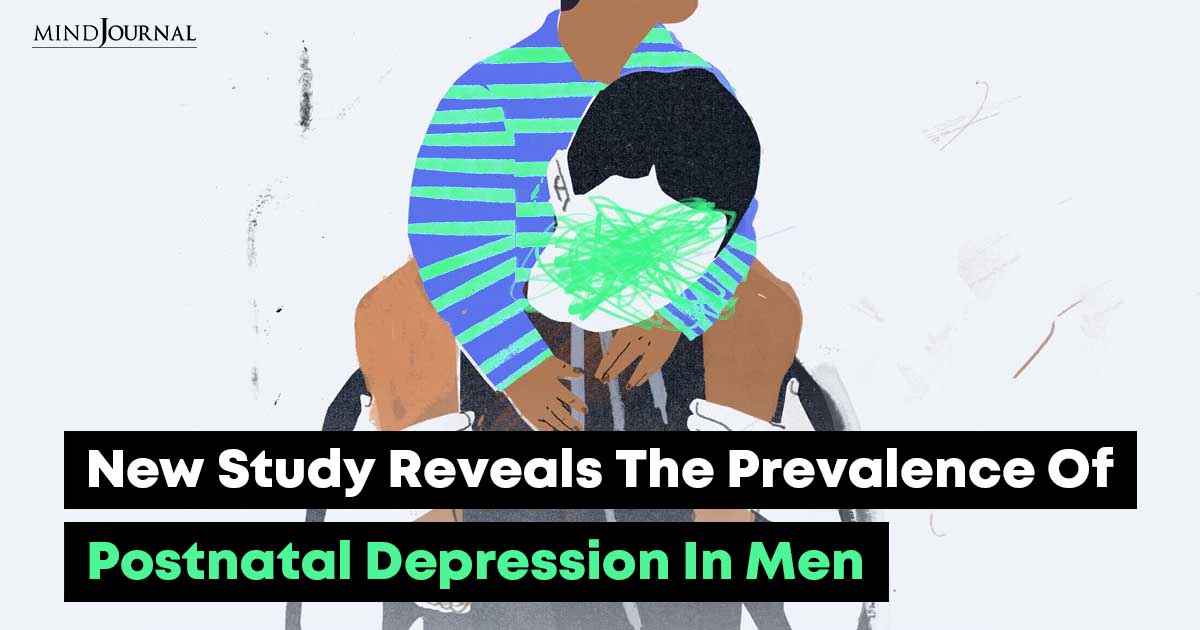In groundbreaking research carried out by the esteemed University College London (UCL), a startling revelation has emerged that there is a high chance of postnatal depression in men. Not only mothers but new fathers are also susceptible to postpartum depression.
The research, which meticulously scrutinized the medical records of a staggering 90,000 men who had recently become fathers, has drawn an undeniable connection between a history of depression in men and the onset of postnatal depression after the birth of their child.
The study’s findings carry significant implications, underscoring the necessity for increased awareness and support concerning the mental well-being of new fathers as they navigate this transformative phase of parenthood.
Postnatal Depression In Men, Crucial Period For New Fathers
The UCL study sheds light on a crucial link between men who have a history of depression and their susceptibility to postnatal depression after entering parenthood. Astonishingly, fathers who had previously received treatment for depression were found to be over 30 times more prone to be prescribed antidepressants again within the first year following their child’s birth.

While postnatal depression is not a universal risk for all fathers, those with a predisposition to depression seem particularly vulnerable during this crucial period of fatherhood.
Read more here: Understanding Postpartum Mental Illnesses
Holly Smith, the lead researcher, and a PhD candidate, emphasized the intricate nature of depression concerning fatherhood. Some men may continue their previous antidepressant treatment, while others might face a relapse of depression due to the challenges of adapting to their new roles as fathers.
This underscores the urgent need to provide fathers with sufficient support and attention to their mental health during this critical juncture in their lives.
Further exploration by the research team uncovered the influence of social deprivation on the likelihood of fathers receiving antidepressant prescriptions. New Fathers living in socioeconomically disadvantaged areas were found to have an 18 percent higher likelihood of receiving antidepressant prescriptions compared to their counterparts in more affluent regions.
Traditionally, discussions on mental health during pregnancy and postpartum depression have largely centered around mothers, inadvertently neglecting the mental well-being of new fathers.
However, this study shines a bright light on the significance of recognizing and addressing the mental health challenges faced by new fathers as they navigate the profound changes that accompany parenthood.
Symptoms Of Depression In Men After Childbirth
Depression in men after childbirth, also known as postnatal depression in men, can manifest in various ways. While these symptoms may vary from person to person, some common symptoms of depression in men are:
- Feeling down, hopeless, or overwhelmed for extended periods
- Experiencing constant fatigue and a lack of motivation
- Becoming easily irritated, short-tempered, or restless
- Persistent feelings of inadequacy or guilt
It’s essential to remember that experiencing a few of these symptoms doesn’t necessarily mean a person has postpartum depression. However, if several of these signs that are considered as symptoms of depression in men persist for an extended period, it is crucial for the individual to seek support.
While approximately one in ten new mothers are affected by postnatal depression, this research demonstrates that a similar proportion of men experience depression during their partner’s pregnancy and the first year of parenthood.
Read more here: The Difference Between Postpartum Baby Blues and Postpartum Depression
As the groundbreaking findings gain momentum, researchers ardently hope that healthcare providers and society as a whole will prioritize the mental health of new fathers, ensuring they receive the support and care necessary to navigate the unique challenges and joys of fatherhood.
The study’s resolute recommendation for mental health check-ups of postnatal depression in men during their first year of parenthood marks a pivotal step towards fostering a healthier and more supportive environment for families.









Leave a Reply
You must be logged in to post a comment.